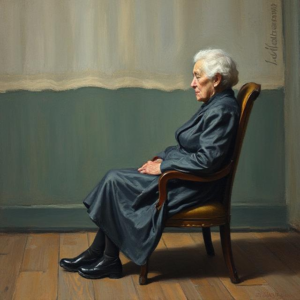Loneliness doesn’t arrive all at once. It tiptoes in, quiet and polite at first — the sound of an unanswered phone, a table set for one, the way the days start to stretch longer than they used to. It’s not always sadness. Sometimes it’s just emptiness, the soft kind that hums in the background of daily life. And for many older adults, it can feel like a new kind of silence — not the peaceful kind, but the kind that echoes.
We don’t talk enough about how lonely growing older can feel.
Friends move away or pass on. Kids grow busy. The routines that once anchored the days — work, school pickups, noisy dinners — shift or disappear entirely. And suddenly, it’s just you and the kettle and the same four walls. The world keeps moving, but you’re not always sure where you fit in it.
But here’s the thing: loneliness isn’t a personal failure. It’s not proof that you did something wrong or that you’ve become invisible. It’s a natural result of change — and change is one of the only things life guarantees.
Still, that doesn’t mean you have to settle into it.
Fighting loneliness doesn’t require grand reinventions. You don’t need to climb a mountain or join every group in town. Sometimes it starts with one small reach outward — a phone call, a walk with a neighbor, a conversation at the post office that lasts a little longer than it needs to. It’s about connection, not crowds.
There are community centers, libraries, and local clubs that offer more than bingo and biscuits — though, let’s be honest, biscuits help. There are classes and choirs, walking groups and book circles, garden clubs and volunteer teams that need what older people so often have: time, wisdom, kindness, patience, stories.
And yes, technology can be a bridge, not a barrier. A tablet can bring distant grandchildren closer. A video call can turn a quiet afternoon into a laughter-filled memory. The learning curve is real, but not impossible — and there are helpers out there to guide you over it.
Sometimes, it’s also about changing the story you tell yourself. Loneliness can whisper lies: You’re forgotten. You’re a burden. No one cares. But the truth is, people are out there who would be glad to know you. Sometimes they’re lonely, too. Sometimes they’re just waiting for someone to go first.
If you’re spiritual, a faith community can offer a rhythm and a circle. If you’re creative, making something — art, writing, knitting, even bread — can become an offering to the world, a reason to share. If you’re unsure, just showing up once — to that open mic, that community potluck, that awkward little gathering in the church hall — might be enough to start something real.
Loneliness thrives in silence, in the unspoken. But connection grows in the smallest moments of courage — in saying “hello,” in asking, “How have you been?”, in showing up even when you’re not quite sure you belong.
Because you do.
You belong in rooms with conversation. In places with light and laughter. At tables with warm food and people who want to hear what you have to say.
You’ve made it this far — through change, through storms, through all the versions of yourself you’ve ever been. You’ve done harder things than this. And somewhere out there, someone’s waiting for the comfort of your presence, your voice, your story.
Loneliness may visit. But it doesn’t have to stay.




